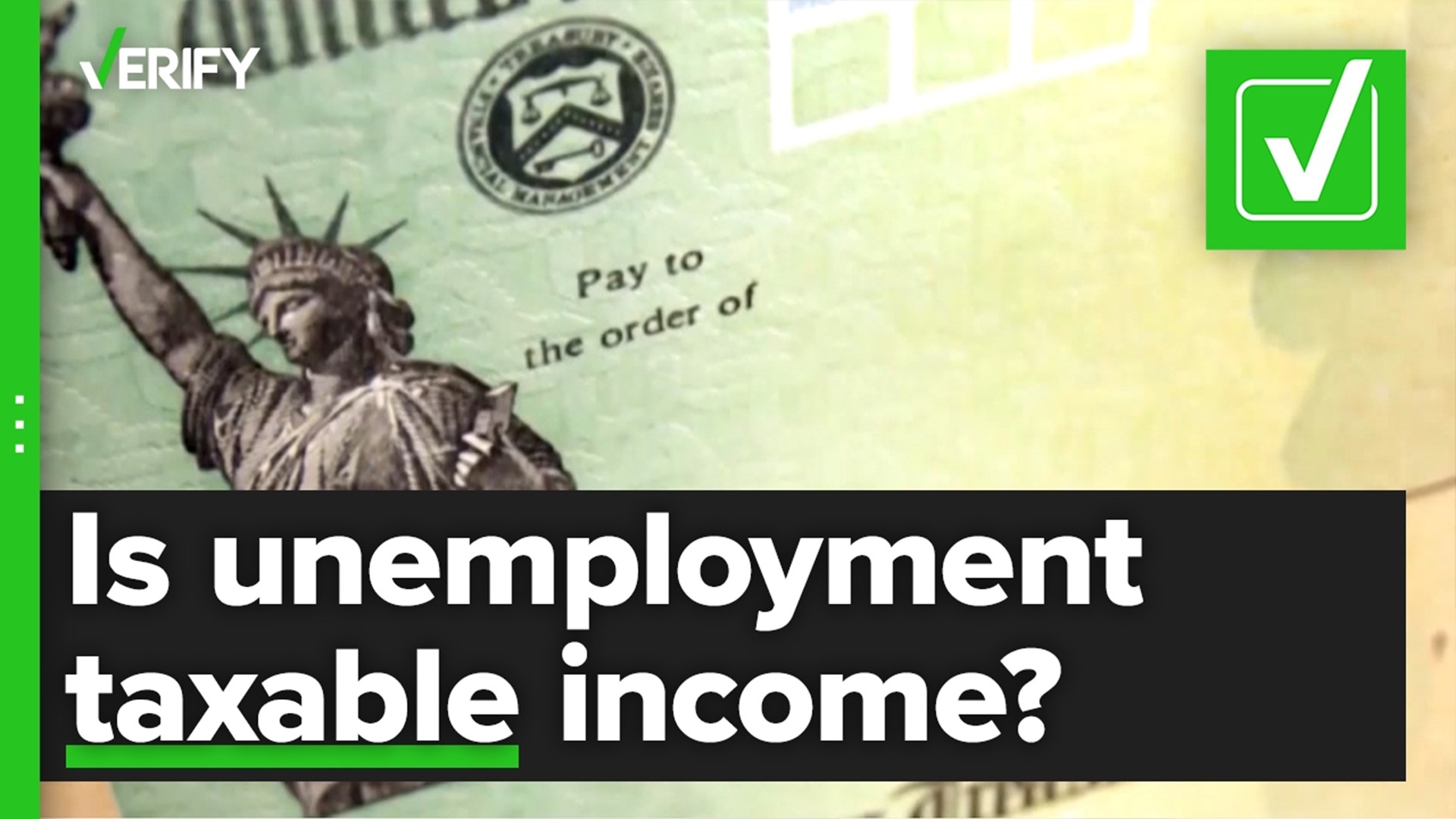Tax filing season officially kicked off in the United States on Jan. 24, 2022. That’s when the Internal Revenue Service says it began accepting and processing 2021 tax year returns.
Amid the first year of the pandemic, the IRS eased certain 2020 tax policies, but many of those concessions expired in 2021. Mark Steber, chief tax information officer at Jackson Hewitt Tax Service, told VERIFY there is confusion around this year’s tax season because some laws flip-flopped on what is considered taxable income – like unemployment benefits.
According to Google Trends insights around the topic of unemployment benefits, a trending Google search in the last seven days was about whether people have to pay taxes on unemployment benefits this year.
THE QUESTION
Are unemployment benefits collected in 2021 considered federally taxable income?
THE SOURCES
- Internal Revenue Service
- U.S. Department of the Treasury
- Mark Steber, chief tax information officer at Jackson Hewitt Tax Service
THE ANSWER
Yes, unemployment benefits collected in 2021 are federally taxable income.
WHAT WE FOUND
In 2020, millions of Americans lost their jobs in the wake of the COVID-19 pandemic and claimed unemployment benefits.
To ease the burden on American households, the American Rescue Plan Act waived federal income taxes on the first $10,200 of unemployment benefits received in 2020. Prior to 2020, all unemployment benefits were considered taxable income.
But the rules changed back in 2021 when Congress did not extend that federal tax break on jobless benefits.
Mark Steber, chief tax information officer at Jackson Hewitt Tax Service, told VERIFY the rules around unemployment benefits may surprise filers this tax season because of the back-and-forth on when these taxes do and don’t apply.
If a household didn’t realize that unemployment income was taxed, they could be hit with some sticker shock. With voluntary withholding, a flat 10% can be withheld on unemployment benefits, but that might not be enough to cover tax liability, especially if someone had income at the front end of the year and got reemployed, Steber said. Recipients who don't choose voluntary withholding, or if the withholding isn't enough, can make quarterly estimated tax payments, the IRS says.
That means individuals who did not withhold taxes from unemployment benefits may not receive as large of a refund or may have to pay more out of pocket.
1099-G forms will be sent to individuals to account for their benefits before the end of January. That form covers the following:
- Unemployment compensation.
- State or local income tax refunds, credits, or offsets.
- Reemployment trade adjustment assistance (RTAA) payments.
- Taxable grants.
- Agricultural payments.
According to the IRS, to report unemployment compensation, the individual would receive Form 1099-G, and have to show the amount of unemployment compensation paid during the year in Box 1, and any federal income tax withheld in Box 4.
Additional instructions can be found here. Follow this link for more information on the IRS and unemployment benefits.
More from VERIFY: No, the CDC doesn’t count positive results from at-home COVID-19 tests












